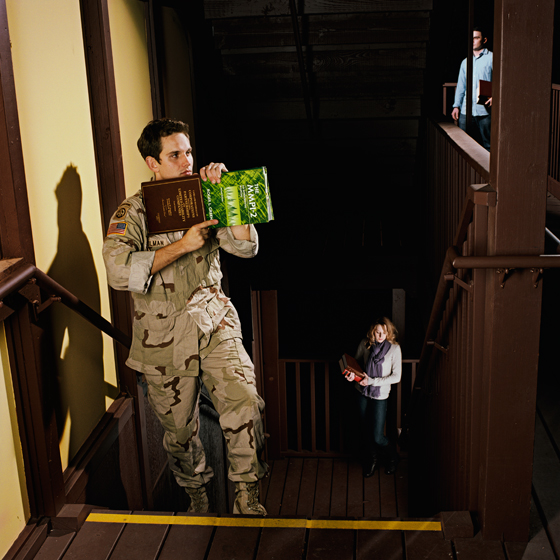|
 |
|
|||||||||
In Iraq I did combat operations—whether it was insurgents or the Iraqi Army or what have you, it was direct fire
combat. We moved around a lot because we were light fighters. During the invasion we fought in Samawah
and Diwaniya and we were some of the first guys into Fallujah, Habbaniyah, Ramadi area. They used us to push
in because our specialty was airborne and urban combat. So, being able to move in, house to house, that’s
what we did best. After the invasion we centered our operations out of Baghdad. Even in school, I can’t go up or down a stairwell without missing my rifle. A weapon system is an extension of your body. Shouldering it and firing becomes as natural as riding a bike: it is reflexive. When you do not carry a weapon, you miss it. A couple of law books are about the weight of a rifle. So more than once, I’ve gone up a stairwell and found myself lifting my books up to the front like a rifle and then thinking, “Hope no one saw me.” John Holman is simultaneously pursuing a PhD in clinical psychology from Palo Alto University and a law degree from Golden Gate University. This text was transcribed and edited from interviews conducted by Jennifer Karady in January 2010. |
|||||||||||
© Jennifer Karady 2022, all rights reserved. |